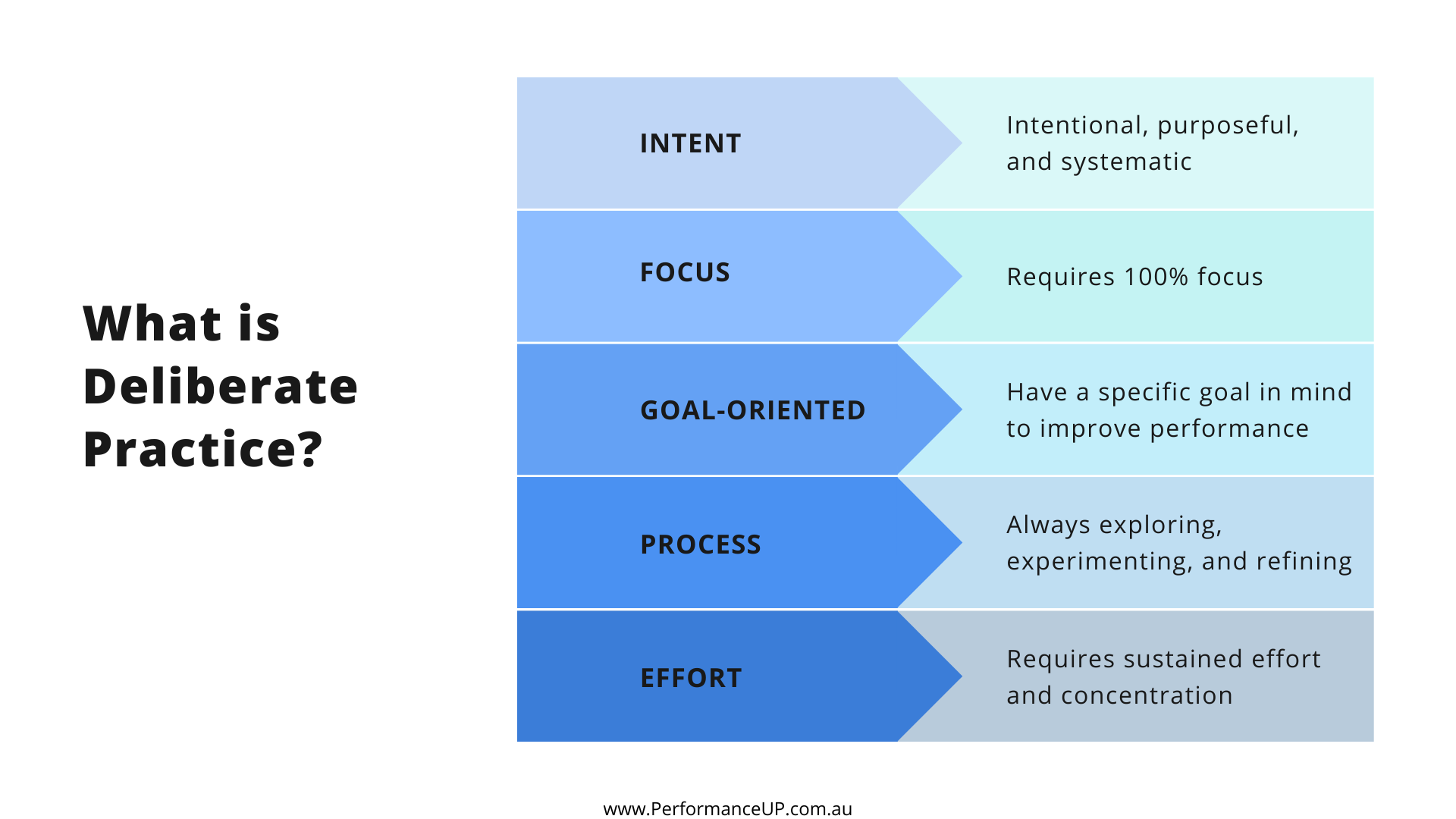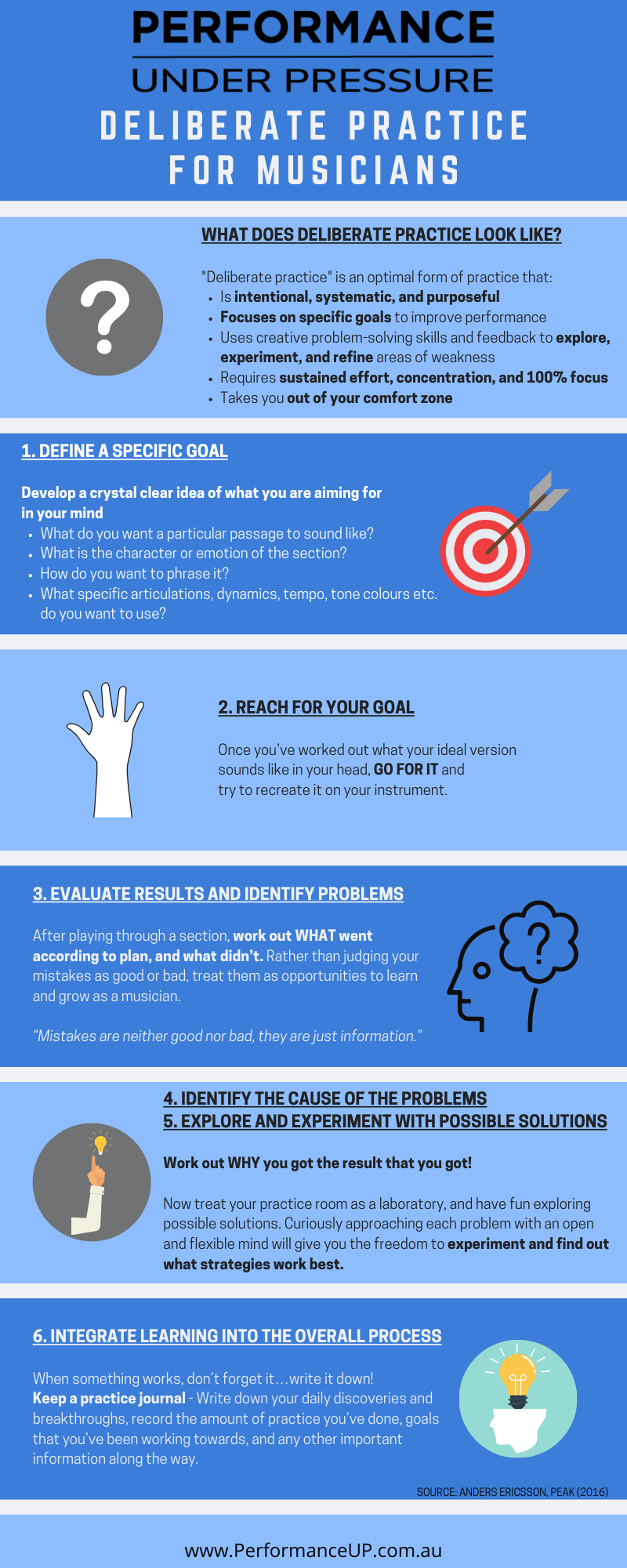Deliberate Practice Part I
Given that most of the world has completely shut down right now, performance opportunities have unfortunately been limited to playing in front of a camera, or for your next-door neighbour. Even though we’ve got oodles of time to sit around and work out what to watch on Netflix, I thought it might be beneficial to my followers to have a closer look over the next few weeks at the most efficient and effective evidence-based practice methods around (so you can still watch plenty of Netflix!) 📺
Whilst many teachers and students regularly come up with WHAT to practice from week to week, quite often the HOW to practice is left up to the student to work out on their own.
How do I get better?
How many hours a day should I be practising?
How many repetitions should I do?
How much of a piece should I be working on at one time?
How should I divide up my practice to cover everything I need to address?
How do I know when I’m improving? 🤷♀️🤷♂️
These are some common questions that I see crop up on social media pages all the time. Whilst many of the answers from other musicians are well-meaning and based on personal experience, I’ve found that taking a more rigorous, scientific approach can give us greater insight into how the human body and mind work. Fortunately due to the massive advancements in technology and research, especially in the field of neuroscience, we are able to pinpoint with much greater accuracy the processes involved in learning and skill acquisition in any given field.
One of the leading researchers in the psychological nature of expertise and human performance is Swedish psychologist and researcher, Dr. Anders Ericsson. He’s basically an expert on experts, and has been analysing the habits and methods of peak performers for decades. If you’ve heard of the so-called “10 years/10,000 hours rule”, then you would already be familiar with Dr. Ericsson’s work.
The core finding of his research is that to achieve “expert” status in any skill, be it music, sports, writing, business, finance or medicine, one needs more than just a large QUANTITY of practice to reach this goal. A specific QUALITY of practice must also occur to produce the best results. Dr. Ericsson calls this specific type of practice “Deliberate Practice”, and he has found it to be the key in achieving high levels of performance.
So what are the characteristics of Deliberate Practice?
1. Intent
There is a clear intent behind what you are about to do in the practice room. You know what you are going to work on, why you need to practice the specific aspect of your playing, and how you will work through it. This gives you a strong purpose and systematic approach to drive improvement, which fuels motivation and confidence.
2. Focus
Deliberate Practice requires 100% focus.
Not 70%. Not 85%. 100% FOCUS!
This means that practice will be exhausting due to the sheer mental effort required to maintain focus throughout each session. But one added advantage of this is that it gives you a good excuse to take more naps during the day, which additionally improves memory retention and skill development! It also means that you’ll need to remove as many distractions as you can from your practice space. So switch your phone onto Airplane mode, and turn off Netflix or the TV before you get cracking!
3. Goal-oriented
You have specific, well-defined goals in mind for each practice session. Check out my SMART goals blog post and download the goal-setting guide to help you achieve this:
https://www.performanceup.com.au/blog/be-smart
4. Process
Practice is always designed around improving skill processes in your playing, rather than focusing purely on results. Sometimes this means ignoring the short-term outcome in order to achieve long-term success. For example, some changes in technique can cause short-term disruption to your progress. However you will end up with a far higher skill level once the adjustments have stabilised.
You are also constantly exploring, experimenting, and refining your skills by improving your mental representation of what you want to create. Seeking out feedback from various sources helps you gain a more accurate picture of where you’re at as a musician. This makes it possible to monitor your own progress more effectively in the future.
5. Effort
Much like focus, Deliberate Practice requires sustained effort and concentration over a long period of time. Dr. Ericsson’s “10 years/10,000 hours” finding shows that performance development takes a long time, and requires enormous amounts of sustained physical and mental effort (although he acknowledges in recent books and articles that this figure is to be used as a guide only, and not as a “rule.”)
It’s a marathon, not a sprint, so you’ll need a fair bit of patience, determination, and a strong will in pushing beyond your comfort zone day-in, day-out. Exerting maximum effort and concentration are essential in extending past your current ability. Whilst this may not be inherently enjoyable, it will help you achieve the success that you’re striving for.
Not only is Deliberate Practice essential for musicians in developing their playing, it can also be applied to other areas of learning and performance. How can you use Deliberate Practice in other areas of your life?
Download the Deliberate Practice guide below to help improve your practice in the future. Next week I’ll cover a step-by-step approach to using Deliberate Practice in the practice room. Until then, happy practising!



